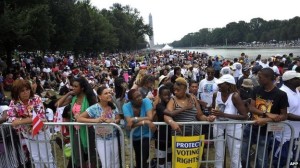Ted Cruz name-drops on an epic scale. His GQ interview is festooned with celebrated names:
“When I was Texas solicitor general, I did every argument in these boots. The one court that I was not willing to wear them in was the U.S. Supreme Court, and it was because my former boss and dear friend William Rehnquist was still chief justice. He and I were very close—he was a wonderful man—but he was very much a stickler for attire.”
It was only after Rehnquist died that Cruz felt comfortable wearing his cowboy boots in the Supreme Court—and only then because John Roberts (“a friend for many years”) blessed it. “I saw John shortly after his confirmation,” Cruz said, “and I guess I was feeling a little cheeky, because I took the opportunity to ask, ‘Mr. Chief Justice, do you have any views on the appropriateness of boots as footwear at oral argument?’ And Chief Justice Roberts chuckled and he said, ‘You know, Ted, if you’re representing the state of Texas, they’re not only appropriate, they’re required.’ ” … Cruz is a dazzling orator, speaking not merely in precise sentences but complete paragraphs—no teleprompter, sometimes not even a podium—and name-dropping everyone from Reagan to Rawls (as in John, the late Harvard philosopher).
His influences, according to the GQ writer:
“Cruz studied right-wing icons Friedrich Hayek, Ludwig von Mises, and Milton Friedman. He also mastered a mnemonic version of the Constitution, which he’d recite, along with four other high school students …”
Cruz should be remembered and commended for winning “the landmark Medellín v. Texas, affirming—in defiance of an international court ruling as well as an order from President Bush—the state’s right to execute a Mexican citizen who’d participated in the gang rape and murder of two teenage girls in Houston.”
MORE.
Fox News:
Cruz’s speech was a symbolic stand, as he was not actually able to stall the bill at this point. In the end, he and every other senator voted to advance the bill and proceed to debate. The vote was 100-0. But Cruz, anticipating that Reid will re-fund ObamaCare, is trying to rally Republicans and moderate Democrats to join in blocking the bill before it comes to a final vote. Another test vote, which will require 60 senators to proceed, is expected in the coming days.
Cruz in action:

